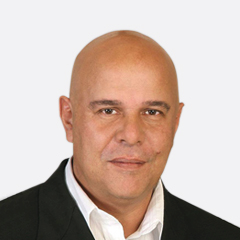Senator wants to boost sustainable mining in Argentina's wine country
A heated debate is taking place in Argentina after opposition senator Alejandro Abraham presented a project to modify Law 7722, which regulates mining activities in the central Mendoza province, known for its wine production.
Among other things, Abraham's bill establishes a new Special Mining Rate, which is 50 per cent higher than royalties and specifies in which sectors the revenue it generates can be reinvested.
Other changes include removing the responsibility of approving Environmental Impact Assessments from the provincial legislature. In the senator's view, the fact that the regional parliament is in charge of this allows for partisan and electoral interests to taint the approval process.
Another polemic aspect the bill touches upon is the elimination of the words "similar substances" from the article that talks about the use of chemicals such as cyanide, sulfuric acid and mercury in mining operations. According to Abraham, the phrase is vague and opens the door for almost any substance to be deemed pollutant. "Each Environmental Impact Assessment will determine which chemicals are considered to be contaminant," he said during an interview with Radio Mitre.
The proposed changes to Law 7722 keep the article that talks about the obligatoriness of having an insurance that covers accidents that cause environmental damages but also proposes the creation of a financial warranty that covers mine closure and land remediation processes.

Senator Alejandro Abraham. Photo Wikimedia Commons.
In terms of mining project approval, the bill introduces the idea of a process with three different levels of oversight. "We propose executive oversight, which would be led by the Environmental Mining Police; legislative oversight, which would be led by the two parliamentary chambers; and because these two can be seen as easily corruptible, the third oversight mechanism would be led by the community through the establishment of an environmental surveillance network," the politician explained.
Abraham said now is the time to propose such changes to the law because 30 per cent of the people in Mendoza live in poverty. "We need to diversify our productive matrix and one way to do that is by boosting the mining sector."
Approached by local newspaper El Sol, the Chamber of Mining Services of Mendoza applauded the fact that the government is discussing changes to Law 7722, particularly taking into account that, according to the Chamber's data, 92 per cent of mine workers in the provinces are currently unemployed.
The Cuyo region, where Mendoza is located, hosts 56 per cent of the country's copper reserves, 53 per cent of the gold reserves, 50 per cent of the molybdenum reserves and 9 per cent of the silver reserves.